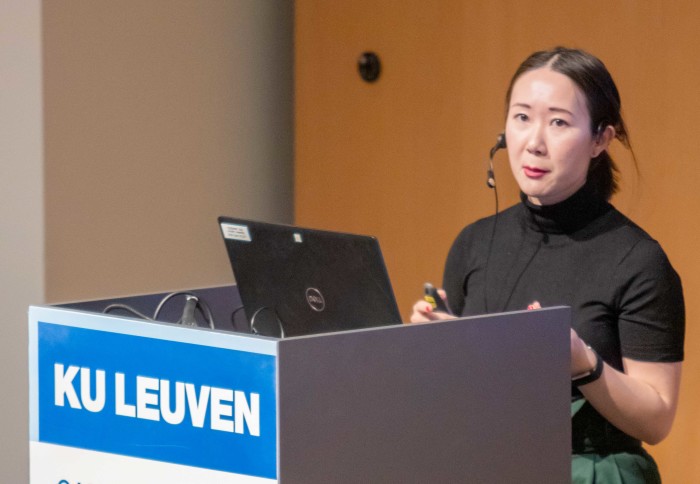Negative Emission Technologies at The LCE2022 conference

Dr Jasmin Cooper presented life-cycle environmental impacts of negative emission technologies at the latest engineering sustainability conference.
The 29th Life Cycle Engineering conference was the latest in a series which gathers experts from around the world in the field of engineering sustainability. Held at KU Leuven in Belgium, the conference aimed to open discussions on how to make things more sustainable and over three days, presentations were given on various topics covering internet usage and electric mobility to machine parts. Held using a hybrid format, hundreds of attendees from around the world joined the discussion on how we can make the future more sustainable. For the attendees who could attend the conference in person, they got to experience the lovely (despite the weather) city of Leuven, which has a rich history and beautiful architecture.
At the conference, Dr Jasmin Cooper gave a presentation on the life cycle environmental impacts of negative emission technologies. She gave an overview of some of the work she has done comparing afforestation/reforestation, enhanced weathering, bioenergy with carbon capture and storage and direct air capture on their impacts to global warming and climate change, land use and ecotoxicity, when used to remove carbon dioxide from the atmosphere.
Besides life cycle assessment, circular economy, sustainable manufacturing and ecodesign were also major themes at the conference. Keynote speakers were given by experts from academia and industry on how we can face the challenges of meeting a sustainable future. As the first conference she has attended in person since COVID-19, the conference was well organised and structured and a great first conference for easing back into a pre-pandemic rhythm. Overall, the conference was a great opportunity to see first-hand the new work being carried out in the field of engineering sustainability.
Article text (excluding photos or graphics) © Imperial College London.
Photos and graphics subject to third party copyright used with permission or © Imperial College London.
Reporter
Jasmin Cooper
Department of Civil and Environmental Engineering